I'm trying to create a formula to combine a SUMIF (using a range of criteria) and a subtotal.
The SUMIF statement:
=SUMPRODUCT(SUMIF(E:E,O2:O21,G:G))
And where I've gotten on making that SUMIF subtotal:
=SUMPRODUCT(SUBTOTAL(9,OFFSET(G2,ROW(G2:G5000)-ROW(G2),0)),(E2:E5000=O2:O21)+0)
That last statement returns an #N/A error. I'd appreciate any input y'all can provide.
Thank you.
Example:
Order | Date | Mach | Rem
-------|-------|-------|-------
A |01/20 | 01 | 1200
B |01/11 | 02 | 400
C |01/21 | 01 | 420
D |01/28 | 04 | 1180
E |01/20 | 01 | 1200
F |01/11 | 04 | 400
G |01/21 | 03 | 420
H |01/28 | 04 | 1180
No t sure I got the table right, so here's an image of what I see.
What I'm trying to do is filter based on the date - say, all orders that occur before 1/21 - and then give the amount remaining in a list of machines.
So, if I wanted the total from Machine 1 and 4, the output from that table (with the date filter on) would be 2800, summing order A, D, E, and F. With the filter off it'd be 5580.


